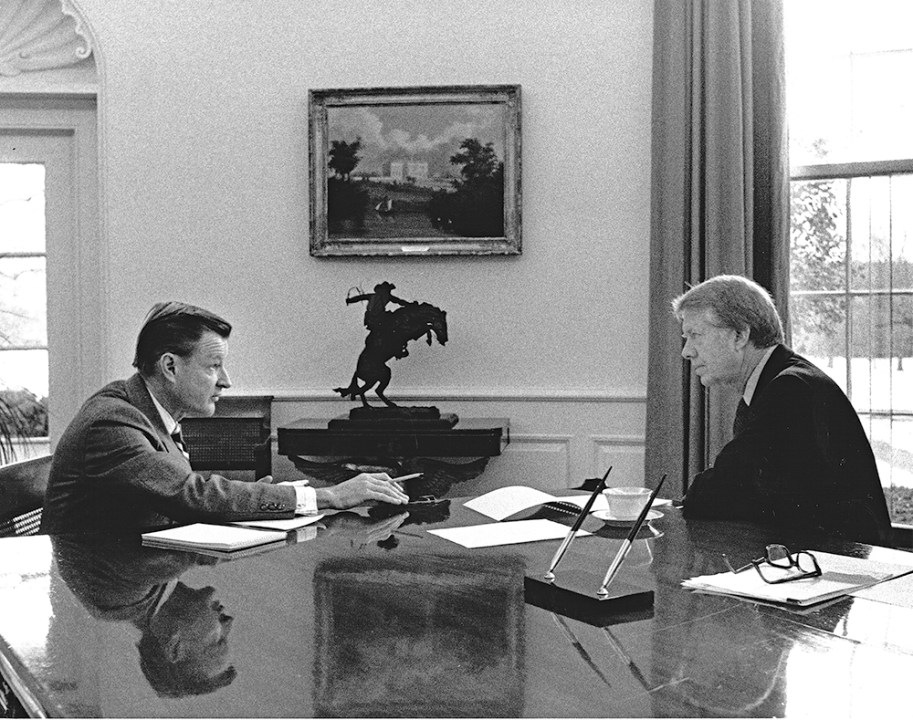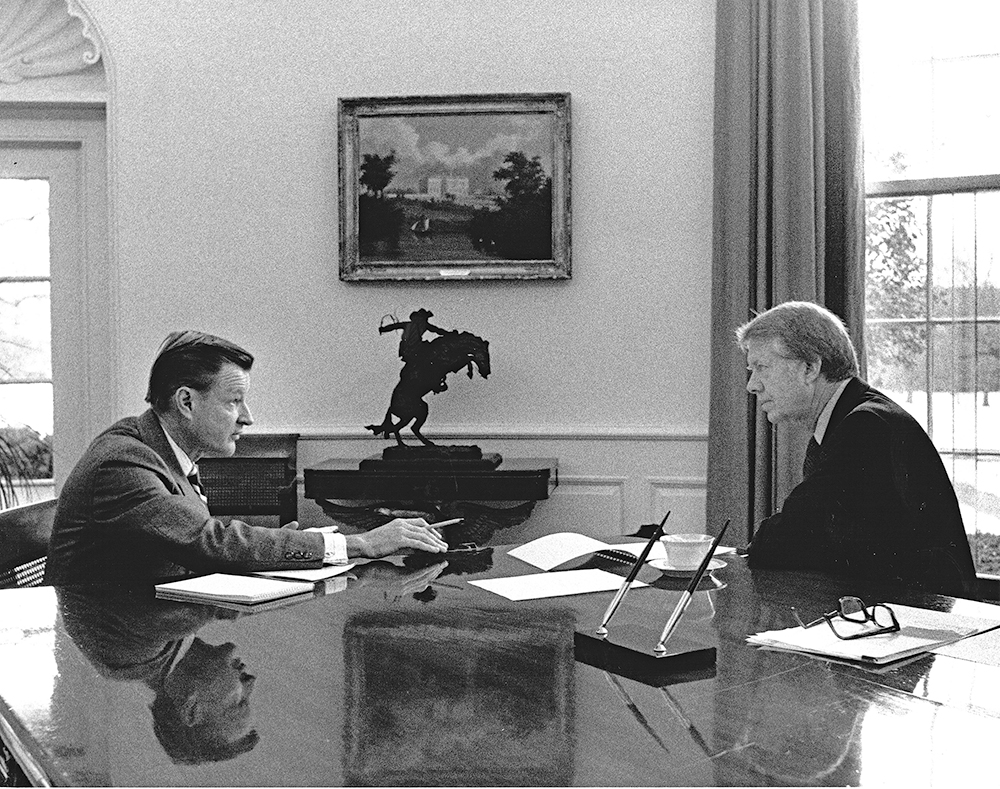
In the autumn of 1938, within nine weeks of each other, two boys arrived in New York, fleeing the gathering storm: a 15-year-old Jewish German and a ten-year-old Catholic from Poland. Both would repay the mortal debt they owed by dedicating their lives to the Land of the Free. The older boy was, of course, Henry Kissinger, later Grand High Poobah to Richard Nixon and Gerald Ford. The younger was Zbigniew Brzezinski, Jimmy Carter’s national security adviser from 1977 to 1981 and the subject of a magisterial biography bythe Financial Times’sWashingtonsupremo, Edward Luce.
From the first, Zbigniew Brzezinski (pronounced ‘ZbigNieff BreshinSki’, as Carter helpfully informed his team) sat in Kissinger’s shadow, always a step or two behind the great Bavarian. Their first encounter was at Harvard in 1950 when Zbig’s first-year lecturer handed the reins to his protégé, described by Zbig as a ‘youngish, somewhat rotund… scholar with a strong German accent’. The Pole disliked the sub’s penchant for ‘Germanic philosophers’. ‘Not my meat,’ he recalled. ‘I rather impolitely rose and left.’
The two circled one another for decades. Alternately respectful, cordial, even playful, they also briefed against each other with the spite only arrogant, erudite rivals can exhibit. To Kissinger, Zbig was a ‘total whore who has been on every side of every argument’. Brzezinski saw in his senior ‘an unprincipled politician, and a political chameleon who only cares about staying visible in US public life and returning to power’. As Harry S. Truman once said: ‘If you want a friend in Washington, get a dog.’
That Kissinger is more remembered is partly due to his being an ‘Olympic gold medal-winning flatterer’, according to Luce. ‘Even with me he would say things I knew to be patently untrue about how he always read my column first thing every morning.’ For his part, Zbig favoured abrasive argument. He would ‘specialise in decapitating people he thought were fools’. And he chose to leave the greater part of his story to be told by Luce, who has had unrestricted access to a voluminous corpus of diaries, letters and papers. The result of this bequest is a landmark study unlikely to be equalled.
This is a high-definition account of one of the great – and most neglected – postwar statesmen and strategists, who helped to shape the end of the Soviet Union. From 1950 on, when he was a mere Masters student, Zbig could see that the simmering nationalisms within the USSR were its Achilles’ heel. As a proud Pole, he knew only too well that non-Russian peoples in the Soviet Union retained deep national feelings that would not tolerate Moscow’s imperialism indefinitely. His rivals and colleagues, Kissinger included, pursued détente, thinking the Reds would inevitably catch up and overtake the US. But Zbig saw clearly how the massive Soviet hulk was vulnerable to degeneration.
Kissinger and Brzezinski briefed against each other with the spite only arrogant, erudite rivals can exhibit
His ‘systematic bent of mind’ pushed Carter to weaponise human rights against the USSR, normalise relations with the Chinese – leading to the opening of listening posts on the Sino-Russian border – and to provide support to Afghan rebel groups following the 1979 Soviet invasion, leaving the Russians bogged down in an unwinnable war. But nowhere was his historic calling more apparent than in Polish affairs. Zbig saw the profound potential of Lech Walesa’s Solidarity trade union and used American might to protect and nurture it. In this he was aided by a countryman, one Karol Jozef Wojtyla (aka Pope John Paul II), who became a lifelong ally (Brzezinski had ‘P’ for ‘Pope’ added to his White House phone).
So it was that in 1980, with the Soviets poised to invade Poland, the two powerful Poles conspired to defend the homeland: Zbig by having Carter issue public and private threats to Leonid Brezhnev; John Paul II by quietly beseeching Solidarity to avoid any action that might give the Soviets an excuse to advance. Years later, the CIA director Robert Gates would conclude that it had been the ‘fragile seeds’ sowed by Brzezinski that had done for the USSR.
If Zbig was responsible for Carter’s greatest foreign policy legacy, he was also central to its greatest failure. Having mistaken the Iranian Ayatollah for a ‘non-violent Shiite version of Mohandas Gandhi’, he advocated successfully for the US to admit the ailing and displaced Shah. It was a decision which precipitated the storming of the US embassy in Tehran and an awful hostage crisis which ultimately destroyed the credibility of Carter’s administration.
That there have been such very long tails to the Carter presidency’s calculations and miscalculations – in eastern Europe, Iran and Afghanistan – speaks loudly of a time when big brains played big dice on the Cold War Risk board of the world. Luce’s exceptional study vividly revives the memory, strategies, tactics and foibles of one of the greatest players of that lethal game.








Comments